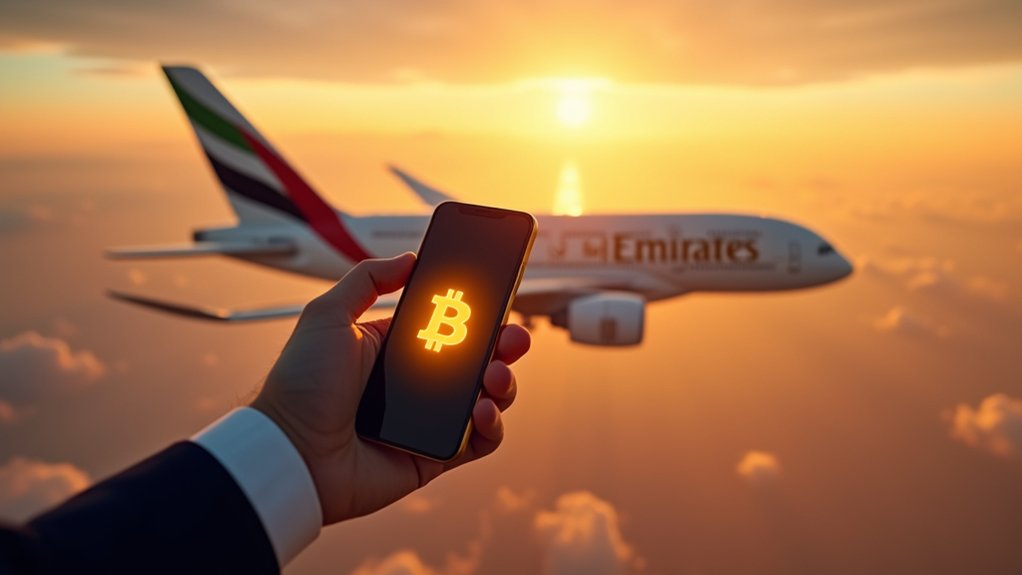Emirates Airline has thrust itself into the vanguard of commercial aviation’s digital currency experiment, signing a memorandum of understanding with Crypto.com that will transform the Gulf carrier into the world’s largest airline accepting cryptocurrency payments for flight bookings. The integration, scheduled for completion by 2026, represents a calculated bet that travelers increasingly prefer paying for their Dubai connections with Bitcoin rather than boring old fiat currency.
The partnership leverages Crypto.com Pay‘s extensive infrastructure, which supports over 20 settlement options including Bitcoin, Ethereum, and traditional currencies like USD and EUR. This flexibility allows seamless conversion between crypto assets and conventional money—a feature that should prove invaluable when Bitcoin’s notorious volatility sends prices careening between booking confirmation and departure gate.
The platform already serves more than 4,000 merchants worldwide, suggesting that crypto payments have achieved something approaching mainstream commercial viability.
Emirates’ strategic calculus appears sound, targeting younger, tech-savvy travelers and digital nomads who view traditional banking intermediaries with the enthusiasm typically reserved for middle seats. The airline seeks to capture demand from crypto holders searching for practical applications beyond speculative trading and expensive NFT purchases.
These customers presumably appreciate faster, more secure transactions that circumvent conventional payment rails—though one wonders about their comfort level with an asset class that can lose 20% of its value during a layover. The system will enable real-time conversion of cryptocurrency payments to AED at the transaction point, ensuring immediate processing for booking confirmations.
The timing aligns perfectly with Dubai’s broader ambitions to establish itself as a global cryptocurrency hub. The UAE government has implemented regulatory frameworks designed to attract virtual asset industries, creating an environment where paying for airfare with digital tokens seems almost conventional. The MoU was signed by Adnan Kazim and Mohammed Al Hakim, formalizing the partnership between the two companies.
This initiative supports Emirates’ digital transformation strategy while positioning the carrier to compete for customers who measure wealth in Satoshis rather than dollars. However, passengers should understand that crypto payments carry inherent risks, including smart contract vulnerabilities that have led to billions in losses across the broader cryptocurrency ecosystem.
The move follows Latvia’s airBaltic, which pioneered crypto payments in commercial aviation, though Emirates’ scale dwarfs such predecessors.








